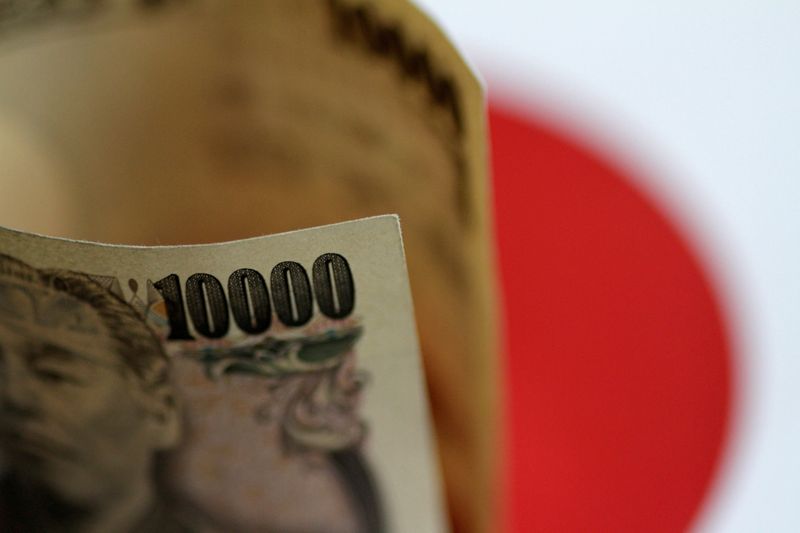By Kaori Kaneko and Daniel Leussink
TOKYO (Reuters) - Japan's efforts to stop the yen's sharp falls through unilateral market intervention would only have a limited impact, a senior member of the country's ruling party warned, as data showed the currency's recent tumble blowing the trade gap out to a record.
The Japanese yen held above 24-year lows against the U.S. dollar on Thursday, a day after authorities issued their clearest signal yet that they were not comfortable with recent sharp declines in the currency and were preparing for intervention.
The yen last traded around 143.62 per dollar, down about 0.3%, having shot up against the greenback on Wednesday on news of the possible intervention.
Satsuki Katayama, the ruling Liberal Democratic Party's (LDP) head of a research commission on financial affairs, said Tokyo lacked effective means to combat the yen's falls and that unilateral interventions would be limited.
"Solo currency intervention won't be that effective" in stemming sharp yen falls, which are driven by the interest-rate gap between the United States and Japan, Katayama told Reuters in an interview on Wednesday.
Persistently high inflation in the United States and elsewhere has forced the Federal Reserve to aggressively raise interest rates, giving the dollar a significant yield advantage that has triggered a rampaging rally against its major global peers, including the yen.
Katayama, who is also a former Ministry of Finance (MOF) official with financial markets expertise, said raising Japan's ultra-low interest rates would also be difficult given the impact that could have on the country's 550 trillion yen ($3.84 trillion) of bank loans.
That sentiment was echoed by Yuichiro Tamaki, the head of the opposition Democratic Party for the People, who said a rate hike would do more harm than good for the economy and instead called on more fiscal support.
The Bank of Japan on Wednesday conducted a rate check with banks in apparent preparation to step in to reduce the yen's falls, which sent it up more than 1% and highlighted its nervousness about its steep declines.
WEAKER CURRENCIES
Japan's policymakers have historically favoured a weaker currency, which makes exports more competitive, but now worry about the inflationary effect it will have on the cost of everything from food and dining out to utility and transport bills more expensive.
Analysts said the rate check would give only brief support for the currency, as Tokyo could struggle to gain consent from Group of Seven counterparts to conduct yen-buying intervention.
Other Asian economies are also turning their attention to risks from weaker domestic currencies.
In South Korea, the country's foreign exchange authority was seen selling dollars to curb the fall in the won, after the currency hit its lowest in nearly 13-1/2 years.
Separately, data on Thursday showed the trade deficit hit its biggest in a single month on record in August at $19.7 billion. The blowout follows a nearly 20% slide in the yen since the start of the year.
The weak yen caused particular pain for household budgets that are facing pressure from price rises, said Ayako Sera, market strategist at Sumitomo Mitsui (NYSE:SMFG) Trust Bank.

"When comparing the positive and negative impact the weak yen is having on the situation in Japan overall, there are clearly more negatives," Sera said.
The trade data showed the average exchange rate was 135.08 yen per dollar, a 22.9% jump of the greenback against the yen from a year earlier.